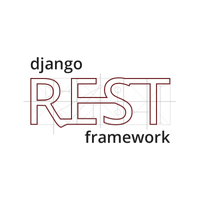What is Microsoft Azure?
Who uses Microsoft Azure?
Microsoft Azure Integrations
Here are some stack decisions, common use cases and reviews by companies and developers who chose Microsoft Azure in their tech stack.
A few years ago we joined Microsoft for Startups program. We received $150/mo creds and started using MS Azure. The check increased as we grew but we loved Microsoft Azure and decided to stay.
Hello everyone, I would like to start using a cloud service to host my projects, which are web applications. If anyone has enough experience with Microsoft Azure, Amazon Web Services (AWS) or Google Cloud Platform, I would like to know which of these is most recommended to use, depending on the features they have or how used they are. Thank you so much.
We are embarking on a project of building a Django web application on Microsoft Azure. The debate holding us back is whether to with Azure SQL Database or Azure Database for PostgreSQL. From all the tutorials and video tutorials they use Azure Database for PostgreSQL but one team member is insisting on Azure SQL Database. Please advise of what to consider if I capitulate what database do I need to install locally to get the project moving.
My Situation: I am both
Working on a startup/side hustle app, an interactive fitness journal that tracks and recommends exercise as well as makes creating meal plans trivial, in Flutter where the back-end will tentatively be written using Django REST framework as a REST API. For what it's worth Microsoft Azure will be my cloud of choice.
I'm also trying to transition away from an on-prem senior engineer to a Cloud Engineer.
Flutter is a firm choice for the FE however I'd really appreciate some guidance on which tools I should consider using to be in line with contemporary cloud languages and tools as well, if it is a good idea to suck it up and put Python on the back burner so I can learn JavaScript. I need things like ORMs, User Auth, etc.
Can anyone please advise?
My process is like this: I would get data once a month, either from Google BigQuery or as parquet files from Azure Blob Storage. I have a script that does some cleaning and then stores the result as partitioned parquet files because the following process cannot handle loading all data to memory.
The next process is making a heavy computation in a parallel fashion (per partition), and storing 3 intermediate versions as parquet files: two used for statistics, and the third will be filtered and create the final files.
I make a report based on the two files in Jupyter notebook and convert it to HTML.
- Everything is done with vanilla python and Pandas.
- sometimes I may get a different format of data
- cloud service is Microsoft Azure.
What I'm considering is the following:
Get the data with Kafka or with native python, do the first processing, and store data in Druid, the second processing will be done with Apache Spark getting data from apache druid.
the intermediate states can be stored in druid too. and visualization would be with apache superset.
I am the Systems Administrator for a (total online) Microsoft 365, and Microsoft Azure, Sentinel Cyber school. I have been searching for over a year about ways to combat logins from all over the globe. I receive a daily report of logins that shows me who and where from they are trying to get access to our domain. I came across this article and I am trying to incorporate it into our Microsoft 365, and Azure, Sentinel; it seems it is almost straight forward until about halfway through then I don't seem to get where to create a playbook from. If someone has figured out a way to install Fail2ban in a Microsoft Azure, Sentinel, and 365 Defender location I would greatly appreciate the help, or if someone could help me get through the playbook section that would also be very helpful.
Thank you Morris
Blog Posts
Rafay Systems
Microsoft Azure's Features
- Use your OS, language, database, tool
- Global datacenter footprint
- Enterprise Grade with up to a 99.95% monthly SLA
- Web Sites- Get started for free and scale up as your traffic grows. Build with ASP.NET, PHP or Node.js and deploy in seconds with FTP, Git or TFS.
- Infrastructure Services- Access scalable, on-demand infrastructure using Virtual Machines and Virtual Networks. Take advantage of what you already know to achieve new capabilities in the cloud.
- Mobile Services- App development with a scalable and secure backend hosted in Windows Azure. Incorporate structured storage, user authentication and push notifications in minutes.
- Cloud Services- Create highly-available, infinitely scalable applications and services using a rich Platform as a Service (PaaS) environment. Support multi-tier scenarios, automated deployments and elastic scale.
- Big Data- Process, analyze, and gain new insights from big data using the power of Apache Hadoop.
- Media- Create, manage and distribute media in the cloud. This PaaS offering provides everything from encoding to content protection to streaming and analytics support.























































